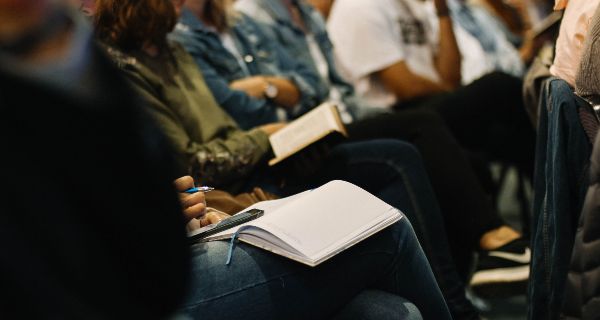

 It’s been a thrill to be part of a MCC small group focused on working through a Systematic Theology curriculum together. I’ve long had the strong conviction that studying theology should not be reserved only for certain Christians (pastors, teachers, etc.). Yet, AW Tozer was right when he said that “what comes to our mind when we think about God is the most important thing about us”.
It’s been a thrill to be part of a MCC small group focused on working through a Systematic Theology curriculum together. I’ve long had the strong conviction that studying theology should not be reserved only for certain Christians (pastors, teachers, etc.). Yet, AW Tozer was right when he said that “what comes to our mind when we think about God is the most important thing about us”.
The truth is that we are all theologians, whether we realize it or not, and we can all be better ones. There’s nothing more important than what, why, and how we believe about God, His creation, His church, and His promises.
Something I’ve learned during our first year of intentionally “doing theology in community” is that God reveals more profound truths in the context of a community of Spirit-filled individuals than He does to believers individually.
"There’s something about being in community that turns out to be as important as having the right source materials, a good method, and even an individual personal relationship with God Himself. "
![]()


There’s something about being in community that turns out to be as important as having the right source materials, a good method, and even an individual personal relationship with God Himself. I don’t know why this seemed so novel to me at first. Isn’t this exactly how God does his transformative work in other areas of life and ministry? So, why not theology too?
“Doing theology in community” has opened my eyes to new ways of thinking about and interacting with the great truths of scripture as they’ve been revealed and handed down to us. It’s easy to acknowledge some of the practical advantages of group-study over individual study – but there’s something bigger going on when not just any community – but a community of Spirit filled brothers and sisters in Christ gets together for the expressed purpose of pursuing deeper knowledge of God together. In this way “doing theology in community” becomes as much about love, fellowship, and worship as it does about pursuing intellectual knowledge. In turn, sound theology helps us to love better, worship better, serve each other better, share the gospel better, and use every ability God has given us to recognize and resist dangerous or divisive doctrines that infect many well intended (and well attended) churches.


“Doing theology in community” has also helped me to question why and how some of my own deeply held beliefs were formed, and how to better examine all of them while holding fast to what is good (1 Th 5:21). Not every belief should be held equally tight. It’s not only OK to hold different beliefs with different degrees of certainly, it’s both rational and God-honoring. Some doctrines are essential to the gospel and therefore “hills worth dying on”, but many are not. Does that mean they are not important? Not necessarily – how we think about God is rarely unimportant – but many things are not worth dividing over, and charity and grace are called for!
Do you know how to tell the difference?

Understanding (and often changing) where we draw these lines in our own thinking helps us avoid unnecessary division in the church and extend as much liberty and grace as possible without sacrificing any of the clear teachings of God’s world or convicting that comes from the Spirit. Doing theology in community doesn’t replace individual or corporate Bible study, community worship, or biblical preaching – but He calls each of us to be transformed by the renewing of our mind (Rm 12:2), in humility (v3), and in the context of the local church (v4,5).
In September we will begin a new course on the Christian doctrine of God (Trinitarianism). This is the third of six semester-long courses in our curriculum, and we happily welcome newcomers. We’ll start this course by setting the context with a general (theistic and non-theistic) worldview discussion. This will lead to a discussion on the knowability of God, and several classical arguments for His existence. We’ll spend a couple of months on the incommunicable and communicable attributes of God culminating in the historical development and biblical defense of the doctrine of the Trinity.
 We’ll finish by developing a historically and biblically informed Christology, asking and answering questions about the divinity and humanity of Christ. Please consider joining us as we humbly seek to learn more about what and why we believe as God’s family and allow God to transform our lives, ministries, His church and our His world as a result.
We’ll finish by developing a historically and biblically informed Christology, asking and answering questions about the divinity and humanity of Christ. Please consider joining us as we humbly seek to learn more about what and why we believe as God’s family and allow God to transform our lives, ministries, His church and our His world as a result.
We meet from 6-8pm on the first and third Thursdays of each month at Luke and Melissa Feldner’s house in Cedar Crest (optional conversations often go much later). Contact Luke for more information. Childcare can be provided, as we also have children.

